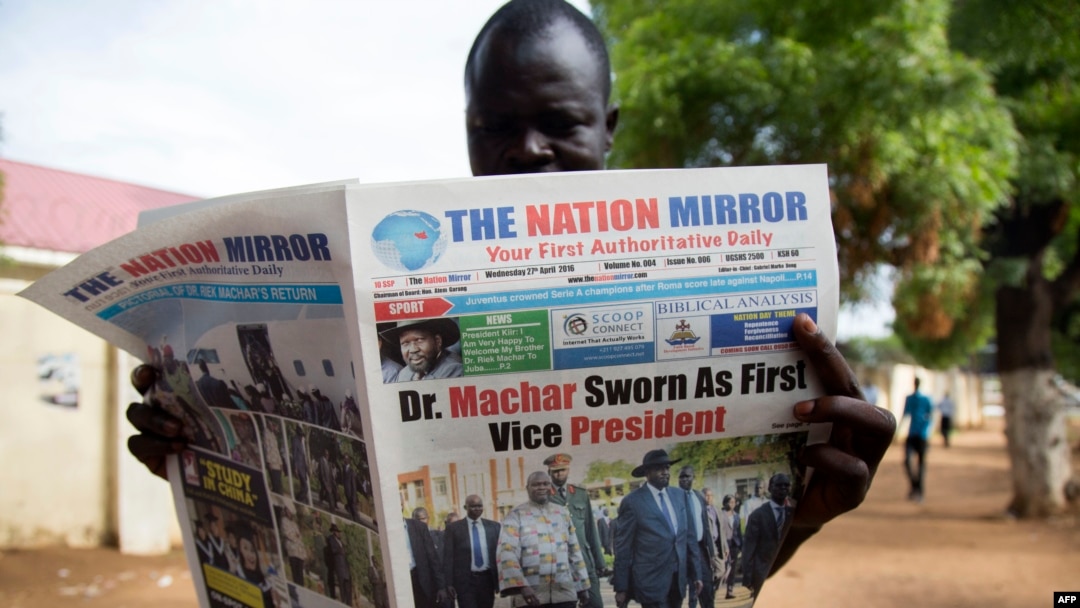South Sudan's Arabic daily Al Watan has accused the country's media watchdog group, Media Authority, of targeting the newspaper after the regulatory agency suspended the publication for one month over alleged licensing issues.
In a letter dated March 26 to Al Watan and seen by VOA's "South Sudan in Focus," Media Authority's managing director, Elijah Alier Kuai, said the paper has been operating for almost a year without a valid license.
Al Watan editor-in-chief Michael Rial Christopher, who is currently in Egypt, told South Sudan in Focus that his paper is operating lawfully in South Sudan.
"We, as a newspaper, our documentations are up to date. But the Media Authority as a regulator should contact all the newspapers (about licenses) and not just Al Watan."
Al Watan warned
The regulatory body warned Al Watan in a letter dated Jan. 7 not to report about antigovernment protests in neighboring Sudan. Christopher said Sudanese embassy officials complained to Media Authority about the paper's opinion articles on Sudan.
Also on Jan. 7, another letter sent to Al Watan ordered the paper to publish an apology to the Embassy of Sudan in Juba within 72 hours of the letter's date.
Christopher said he refused to comply because his paper did not write inaccurate reports about the protests in Sudan. He said his troubles started after the encounter with the regulatory group.
Death threats received
Christopher also told South Sudan in Focus he received several telephone death threats from unknown people in Juba before the media watchdog group suspended his paper.
"I started receiving death threats and intimidations from unknown telephone numbers. Now, they have shut down the newspaper, but they have failed to kill me. But I am sure they will do that once I return to Juba," Christopher said.
South Sudan's media regulator suspended all press associations in the country in 2017 and asked them to register for licenses to operate. The move caused South Sudanese journalists to raise concerns about a crackdown on independent media.
Four news websites and blogs — including the Dutch-backed radio station and website Radio Tamazuj — have been blocked since 2017.
Foreign correspondents have also faced difficulties in reporting from South Sudan, with at least 20 reporters being denied entry into the country since 2017. Most international journalists who want to cover South Sudan must obtain a press pass from Media Authority before applying for a visa to enter the country.
A risky business
Christopher said operating a newspaper in South Sudan is risky, characterized by threats and intimidation.
South Sudan had 15 daily newspapers at one point, but the number has fallen to five, due to frequent harassment and interference from authorities.
Christopher said he will return to South Sudan after completing a medical checkup in Egypt. Christopher also said he plans to complain to the Justice Ministry about the behavior of Media Authority officials.


